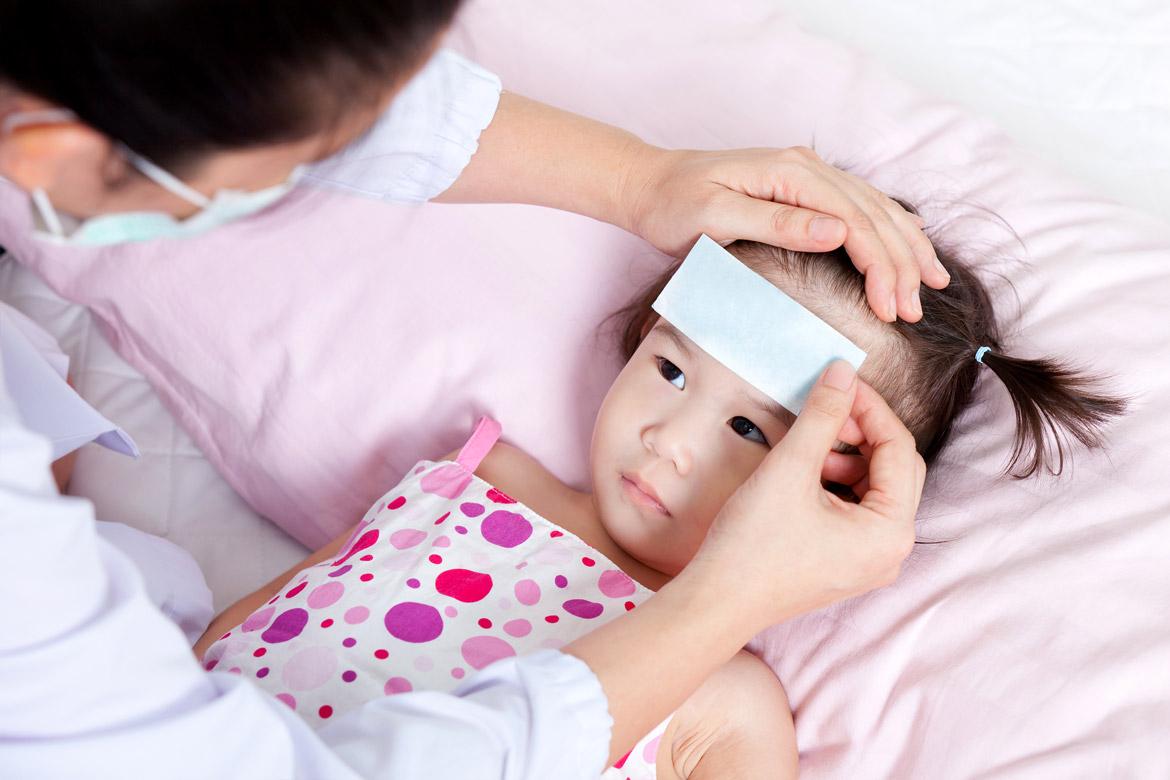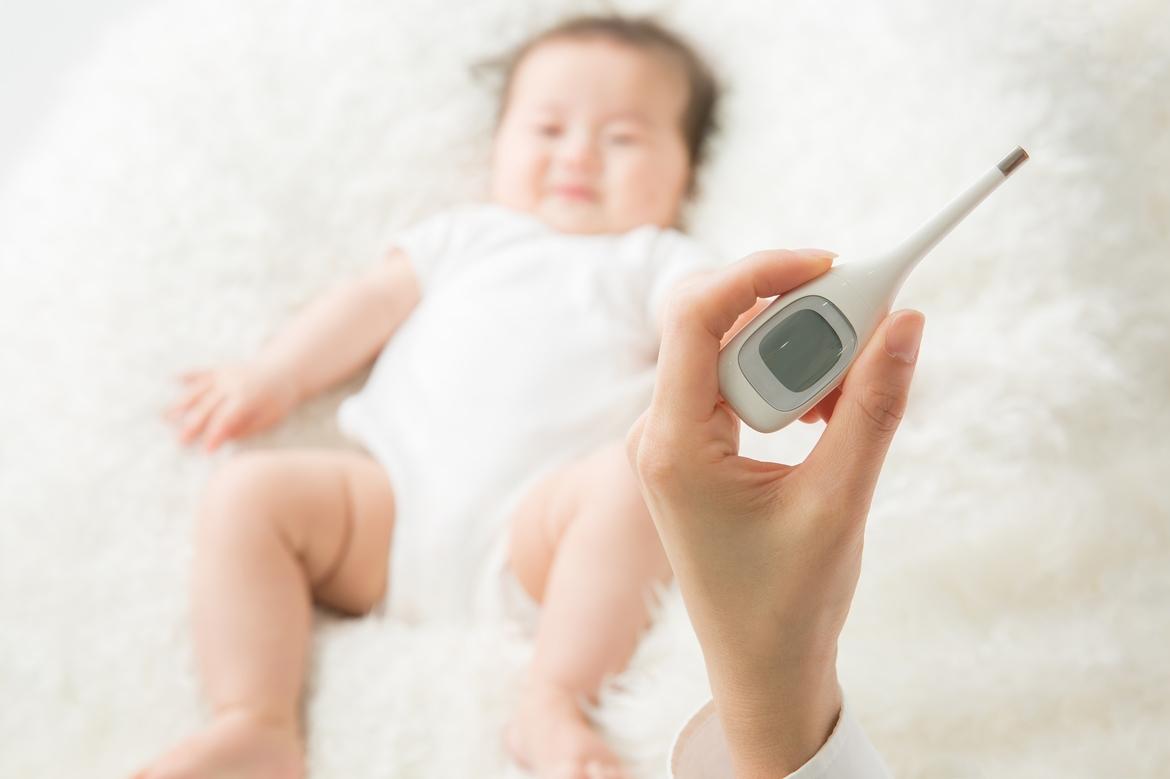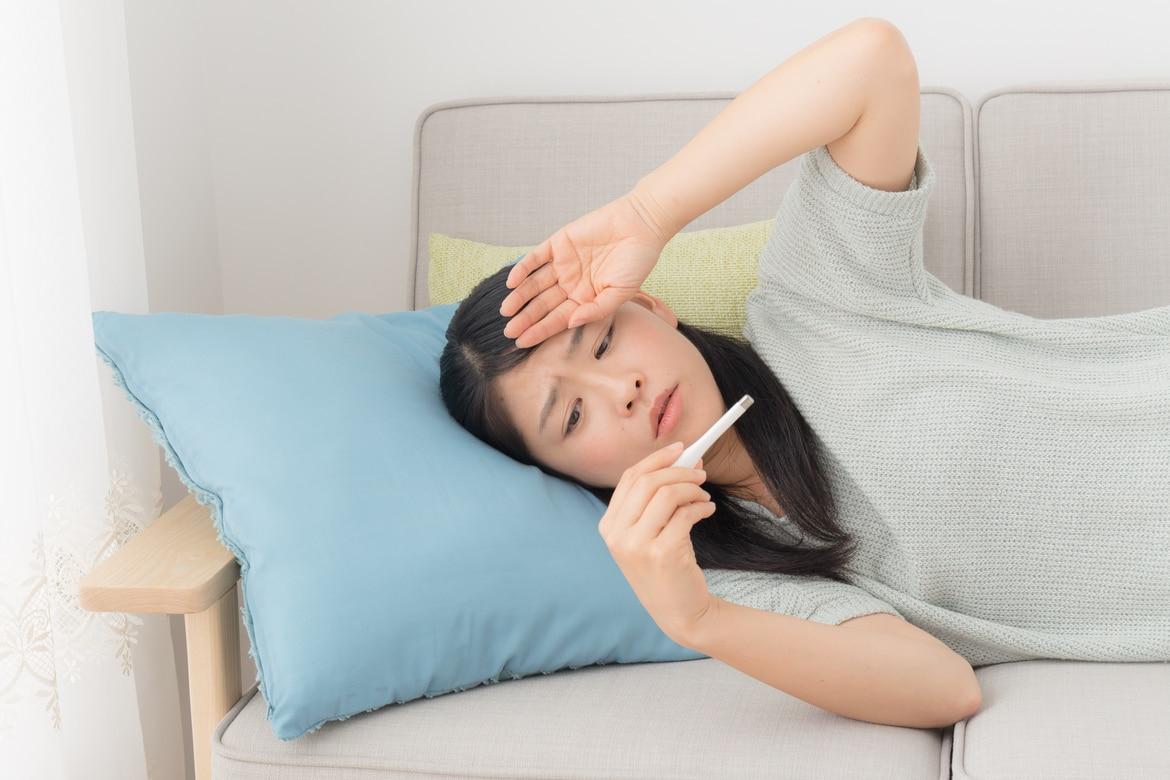
Fever
Frequently asked questions
A: To promote your child's recovery from a fever, you should:
- Keep your child hydrated with lots of water.
- Dress your child in light and comfortable clothing. Avoid overdressing your child or wrapping your baby in multiple layers.
- Provide a blanket during periods of shivering and switch off any air-conditioning to raise the room temperature.
- Avoid cold showers, as shivering will further raise their body temperature. Use lukewarm water for showers instead.
- Sponge their body using lukewarm water. You may use a wet towel to sponge their forehead, neck, armpits and groin.
A: Children are more prone to getting fevers as their immune systems are not fully developed.
A fever is a sign of the body fighting an infection such as a viral or bacterial infection. These are more common in the first few years of life.
A: Body temperatures rise naturally in the evening, so a slight fever in the day can easily spike during sleep.
When your child has a fever, you should:
- Dress them in a layer of light clothing.
- Place a light blanket on them when they sleep.
- Avoid waking them to take their temperature unnecessarily.
- Avoid giving them fever medicine unnecessarily if they are otherwise healthy, with no serious underlying medical conditions or severe infections.
A: It depends on the temperature you set. Generally, it is recommended to keep the room at a moderate temperature – not too hot and not too cold.
You may use air conditioning or a fan on its low setting to achieve temperatures between 24 – 26 degrees celsius. Avoid blasting air conditioning directly towards your baby.
Raise the temperature further or switch off the air-con if your child starts shivering with a temperature rise.
A: Depending on your type of fever medicine, you may:
- Aim the medicine dropper towards the back of your child's cheek to release the medicine as close to the throat as possible and reduce the likelihood of spitting the medicine out.
- Camouflage the medicine by mixing it into food or water. Avoid using too much food or water as your child might feel too full to finish the medicine. Before you use this method, ask your doctor if this might affect the medicine's effectiveness.
Note: Always make sure that your child is sitting upright before giving any medication. If your child still manages to spit some medicine out, do not give your child another dose. Only give an extra dose if your child has vomited out their medicine soon after taking it.
A: You can sponge your baby's body using lukewarm water. Use a wet towel to sponge their forehead, neck, armpits and groin. It is important to dry your child off immediately after to avoid the chills.
A short, 15-minute bath in lukewarm water can also help to bring your child's fever down. Ensure that the water does not get cold, and take them out if they start shivering.
Note: Do not use cold or iced water, and avoid sponging your child for more than 30 minutes at a time.
A: In general, children with fever and vomiting should drink plenty of fluids to avoid dehydration. If your:
- Baby is vomiting, you should continue breastfeeding or giving them small amounts of their milk feeds as they will need extra fluids.
- Child is vomiting, you should: Encourage them to take small sips of clear fluid, such as water or clear broth. Avoid fruit juice and fizzy drinks until they get better. If your child is not dehydrated and has not lost their appetite, it is fine for your child to eat solid foods as normal.
A: Some parents believe that teething can cause a fever. However, there is no evidence to support this. Teething may cause your baby's temperature to increase slightly, but not enough to cause a fever.
If your baby has a fever when they are teething, it is likely due to an infection they have caught. Infections are more likely in babies who are teething due to frequent mouthing of fingers and other items.
A: Fevers are a sign that your child is actively fighting an infection they have caught. Although medicine may bring the fever symptoms down, your child may still be contagious.
To keep other children safe, it is best for your child to stay home until they are fever-free for about 24 hours.
A: If your child is experiencing a febrile seizure, it is important to avoid panicking, stay calm and observe the child. Most fever-induced seizures last for less than 3 minutes.
During a febrile seizure, keep your child safe and prevent any accidental injury by:
- Placing your child on a soft surface such as a bed.
- Laying your child on their side or stomach to prevent choking.
- Ensuring that your child is breathing adequately.
- Using a soft cloth to gently clean saliva from your child's mouth.
- Not inserting your fingers or any other objects such as spoons into the mouth.
- Noting when the seizure began and how long it lasted, as your doctor may require this information later.
- (If this is a recurrent febrile seizure) Administer any treatment that your doctor has prescribed to stop the seizure.
Once your child is fully awake, give them medication (paracetamol or ibuprofen) to reduce fever.
Note: If your child's convulsions last for 5 minutes or longer, call 995 or bring them to our Urgent Care Centre (UCC).
This page has been reviewed by our medical content reviewers.
Need help?
For enquiries, please call
+65 6250 0000 (Orchard) or +65 6898 6898 (Novena)
For appointment bookings, please WhatsApp
+65 8111 7777 (Orchard) or +65 8111 5777 (Novena)
 Brain & Spine Care
Brain & Spine Care





